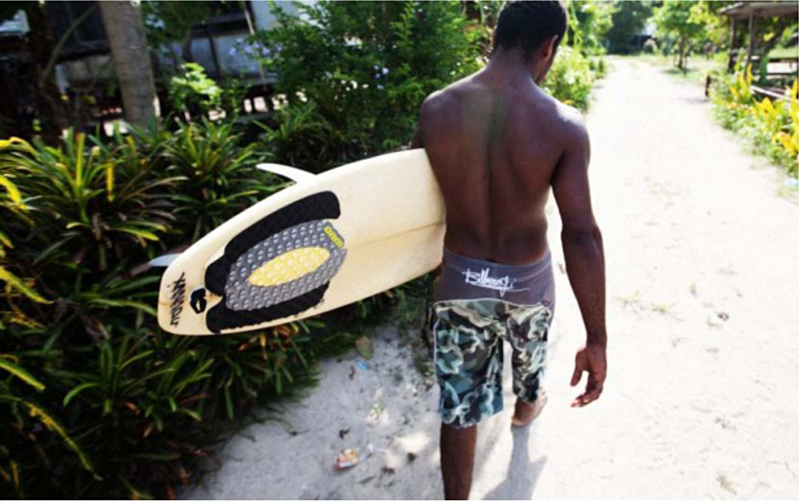There is the expectation in a surfing movie that we should see plenty of wave-riding shots, those sun-bronzed gods astride their boards, ripping out of the blue curl to glory. What this documentary also shows us is surfers chopping wood, baking bread, smuggling scrap metal, building huts, and otherwise eking out a subsistence living in the remote rural village of Vanimo, on the north shore of Papua New Guinea. There, neophyte American filmmaker Adam Pesce, also a surfer, spent six months filming the preparations for that country’s first national surfing competition. Shot on low-grade video, Splinters isn’t interested in glamorizing a sport that Vanimo’s aspiring athletes intently study in old surf mags. Instead, it’s more of an anthropological project. Living among his subjects, Pesce sympathetically listens to their dreams of glory, watches their labors, films their training, and observes some disturbing scenes of drunkenness and domestic violence. Three winners in the competition will earn scholarships to Australia. If Vanimo looks like paradise to us tourists, the top surfer Angelus states his intentions plainly: “I want to get out.” At 16, he explains with a sad smile, the paperwork was lost for another scholarship he won. Now 27, he’s got four kids and an angry ex-wife demanding alimony. She’s also the sister of the rival surf club’s leader; edited together by an HBO veteran, Splinters makes much of this village conflict. If there’s sometimes a reality-TV taint to this drama, it’s far outweighed by the economic stakes involved. We learn of bride prices still unpaid and hear a local surfer/hotelier declare “Eventually, everyone will be civilized.” That’s what tourists will expect for an expensive vacation in a place that’s postcard-pretty but, as Splinters shows, no idyll.
Splinters: Surfing and Sociology in the South Pacific








